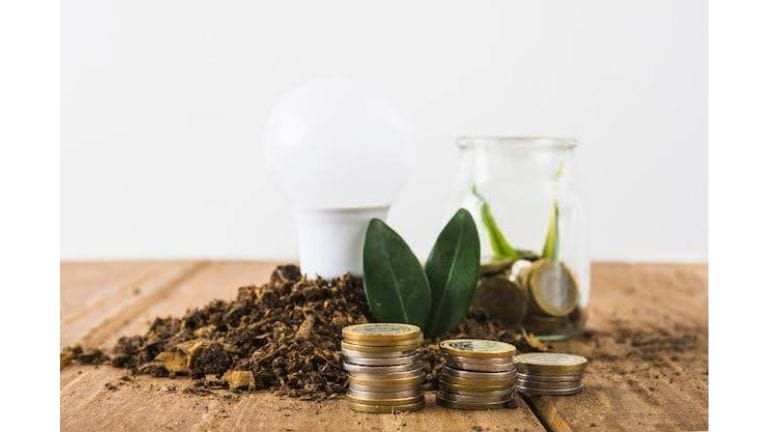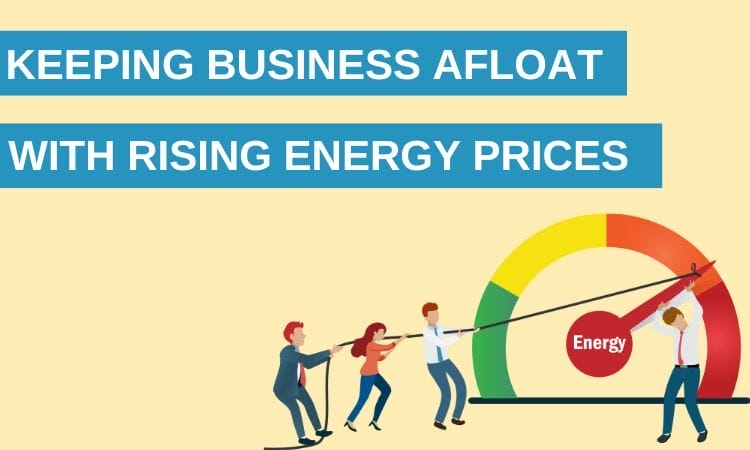Businesses everywhere are under great strain due to the continuous increase in energy costs. Given the escalating prices of corporate energy, it is crucial to investigate tactics to maintain your company’s competitiveness. Energy procurement service consultancy provides a means to cut expenses and maximize energy use. By working with businesses like utility bidders, you can compare offers, get good contracts, and ensure your company survives growing costs in the energy market.

The Impact of Rising Energy Costs on Businesses
The surging gas and electricity costs in recent years have put a heavy financial burden on companies. Increases in company energy costs are especially painful for small shops. Rising gas and electricity costs are the norm, and purchasing energy is becoming more complex than ever due to wholesale price volatility.
Energy costs for businesses impact not only the energy bill but also the total budget, profitability, and operational efficiency. A significant impact may be achieved by closely monitoring corporate energy expenses and investigating energy procurement consulting services.
Strategies to Manage Rising Energy Prices
Flexible energy procurement options are among the best solutions for organizations to lessen the impact of growing energy costs. Businesses can choose contracts that lock in rates during periods of low pricing and stay flexible during higher wholesale costs. Taking advantage of market downturns can ultimately result in cost savings.
Green energy procurement is also becoming more popular as companies look to lower their carbon footprints. Businesses that use renewable energy sources not only support sustainability but also qualify for tax breaks and other benefits from the government. Putting money into green energy procurement may be a wise financial and environmental decision.
The Role of Energy Efficiency Measures
Another essential strategy for controlling growing expenses is using energy-saving measures. Lower energy expenses can result from reducing energy use through operational improvements, such as installing smart meters, increasing insulation, or switching to energy-efficient lighting. Smart meters provide organizations with better monitoring and control over energy consumption by providing real-time data on usage.
Business energy experts can offer customized guidance on optimizing your operations’ energy efficiency. Businesses may minimize their energy expenses and support sustainability initiatives by streamlining operations and cutting waste.
Fixed vs. Flexible Energy Procurement
Businesses frequently offer fixed agreements and flexible procurement as their primary alternatives when selecting an energy procurement provider. By locking in a particular price for a predetermined amount of time, fixed agreements can shield your company from changes in the market. On the other hand, you may find yourself overpaying if wholesale costs fall dramatically.
However, flexible energy procurement offers the flexibility to make changes in response to changing market conditions, allowing you to lock in reduced rates as prices decline. Your cash flow position and risk tolerance will determine which of these two solutions is best for you.

The Role of the Energy Regulator, Ofgem
In the UK, the energy regulator Ofgem controls business electricity prices and shields customers from exorbitant fees. The energy price cap, which Ofgem enforces, limits business energy suppliers in how much they may charge residential consumers. The price ceiling affects wholesale pricing, which can affect the rates enterprises eventually pay, even if it does not directly apply to them.
For instance, companies might use the price ceiling when deciding whether to stick with a flexible energy procurement plan or a fixed arrangement. To further guarantee that homes and companies have access to technology that promotes energy efficiency, Ofgem also oversees smart meters.
Comparing Energy Prices and Finding the Best Energy Deals
Pricing comparisons are one of the most practical ways a company can control escalating energy expenses. Utility Bidder and other price comparison platforms let businesses evaluate energy prices offered by different providers. By considering variables such as unit costs, standing fees, and contract conditions, these services assist in locating the best offer.
Companies can lose out on getting cheaper rates if they don’t routinely evaluate energy agreements. You may avoid being trapped in increased rates, particularly during periods of market volatility, by comparing energy suppliers at least once a year.
Managing Business Energy Bills and Costs
Controlling business energy costs becomes crucial for survival because gas and electricity prices account for a significant portion of operating budgets. Energy procurement consulting services can help businesses maximise existing energy contracts, find cost-saving options, and reduce overhead.
Businesses may save energy usage by using more efficient procedures in addition to procurement services. Lowering electricity bills and gas rates may be achieved by doing simple things like installing energy-efficient equipment, enhancing insulation, and configuring smart meters for accurate readings.
Reducing Your Carbon Footprint with Green Energy
Purchasing green energy has benefits beyond financial returns on investment. Sustainability is also a factor. Businesses that use green energy may help combat climate change by drastically lowering their carbon footprint. Using sustainable energy solutions can help a business attract eco-aware clients and improve its reputation in light of the growing need for corporate responsibility.
Additionally, governments frequently offer tax exemptions and incentives to companies that invest in renewable energy, generating extra revenue.
Understanding the Unit Prices and Standing Charges
Unit rates, the cost per kilowatt hour, and standing charges, or a set daily amount, are the two main components of energy bills. Businesses should compare energy prices based on both factors, as comparing offers based only on unit pricing may not provide an accurate picture of expenses. Considering the standing fee when calculating your total energy expenses is essential since it offsets supplier administrative costs and infrastructure upkeep.
How to Prepare for Future Price Rises
Since energy costs are unpredictable, businesses must be ready for future price increases. Your company may be protected from unforeseen hikes by ensuring you get the best possible price and clearly grasp your energy arrangements.
Business energy specialists advise organisations to monitor market developments and closely collaborate with suppliers to modify agreements in line with changing circumstances. Being proactive is essential to successfully manage energy bills, whether negotiating with your energy supplier or signing a new energy contract.
Conclusion
Rising energy costs present businesses with a significant challenge, but your organisation may survive with the appropriate tactics. You can improve significantly by using energy procurement consulting services, implementing energy-saving strategies, and routinely comparing offers on websites like utility bidder.
Businesses may control their company’s energy expenses in a fluctuating market, lower their energy bills, and increase efficiency by being proactive and knowledgeable.
